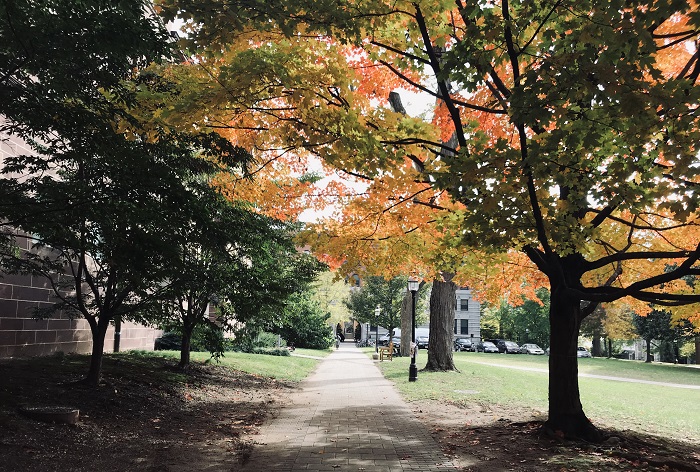Working as a tour guide, I’ve had the opportunity to spend much of this summer living on campus at Princeton University. This has been, generally speaking, an enjoyable experience, but there are some important ways in which life at Princeton during the school year differs from life at Princeton over the summer. Most noticeably, the campus is fairly devoid of Princeton students themselves, with the exception of those conducting research or working a campus job. Princeton does not offer any summer classes, so most students take the opportunity to spend the summer pursuing internships and other programs across the globe. However, many visitors travel to campus to attend our information sessions and tours.
Summers at Princeton have allowed me to develop a renewed appreciation for the campus. Without classes, work or extracurricular activities to manage, I’ve been able to dedicate additional time to enjoying the peaceful beauty of Princeton’s lovely buildings and outdoor spaces. A weekend trip to, in my opinion, the unpleasantly loud and bustling New York City helped remind me how much I value living and studying in a place as quiet and serene as Princeton, while not being completely in the middle of nowhere. Exercising at Dillon Gym has also been a nice change of pace.
Not everything is so rosy, however. Having grown up in Florida, I assumed that summer temperatures up North would be easily manageable. I was punished for my hubris, quickly discovering that the New Jersey summer gave Florida a run for its money with its heat and humidity. One heat wave in early July produced “feels-like” temperatures well above 100 degrees and sent me fleeing from my non-air-conditioned room in search of a building with air-conditioning. Summer is also, understandably, the time in which much construction and renovation takes place, with iconic Princeton structures such as Blair Arch and Nassau Hall, among others, undergoing significant construction. Hopefully, this will show visitors that Princeton works hard to keep its buildings from falling into disrepair. Finally, the inability to eat all my meals in a dining hall during the summer has made procuring food more difficult. But Wawa, a convenience store with food options on campus, fortunately offers a summer sale on hoagies that has produced some savings, given the probably-unhealthy number of said hoagies I have consumed.
Soon, however, the Wawa hoagie sale will come to an end and Princeton students will reconvene on campus from all over the world. While spending the summer on campus has been a generally positive experience, I still eagerly await the fall. As much as I love the campus itself, the community of students is what really makes Princeton a special place.
